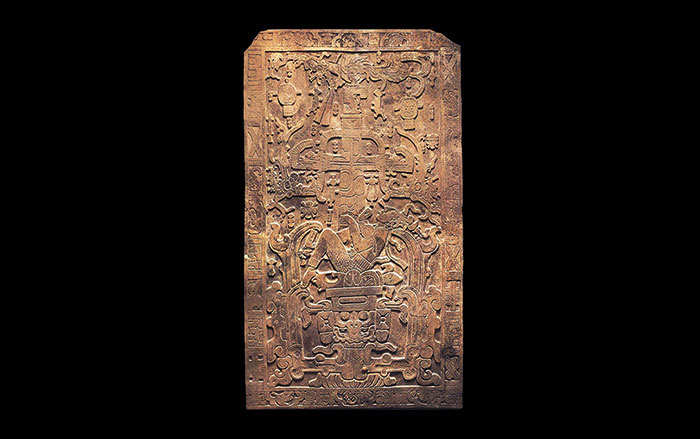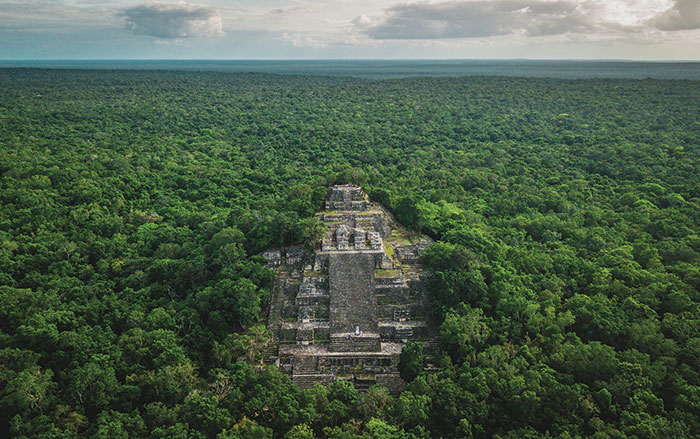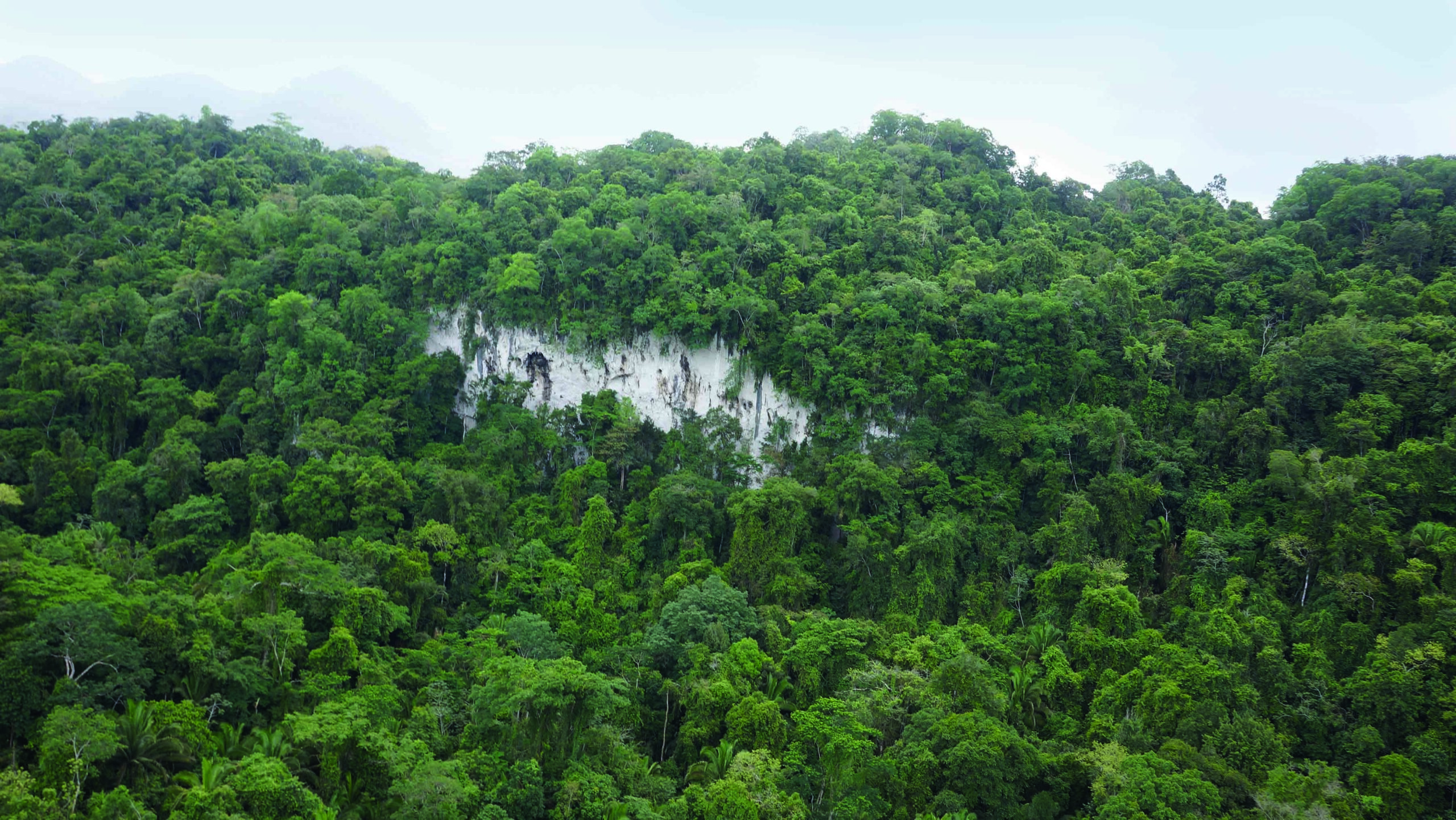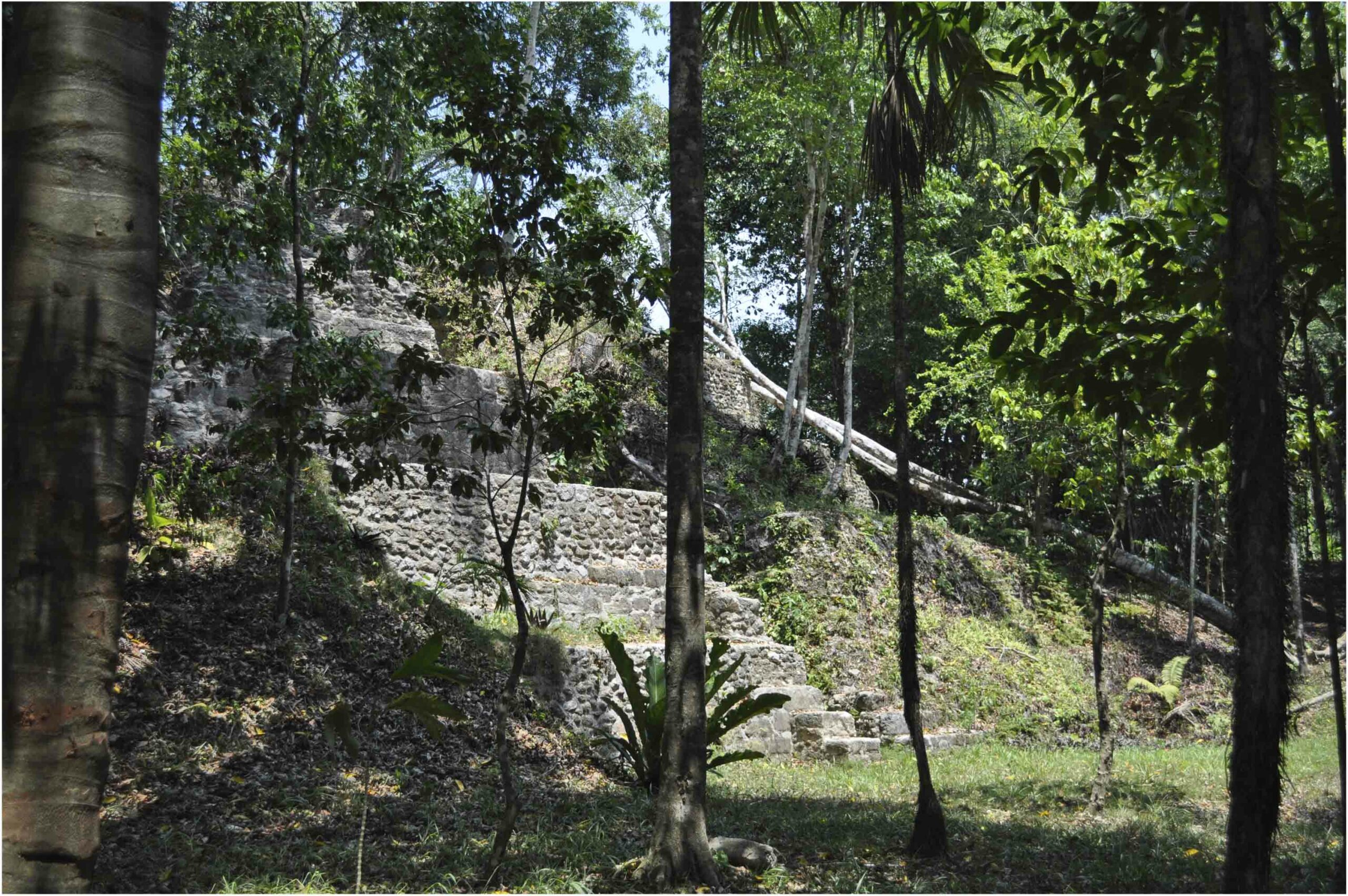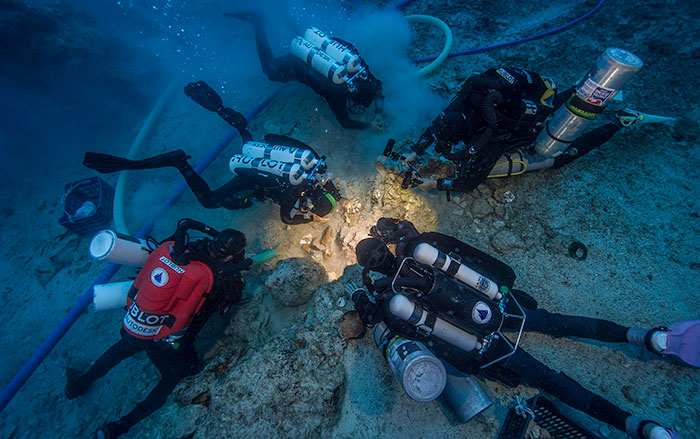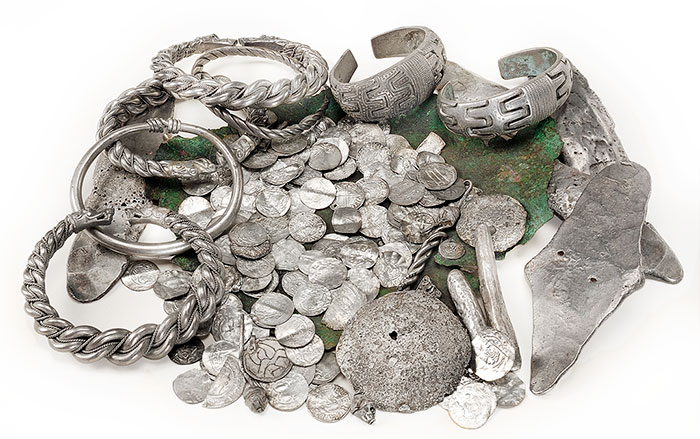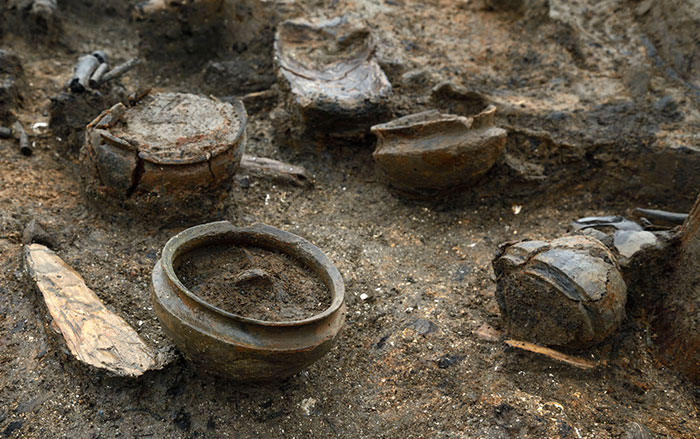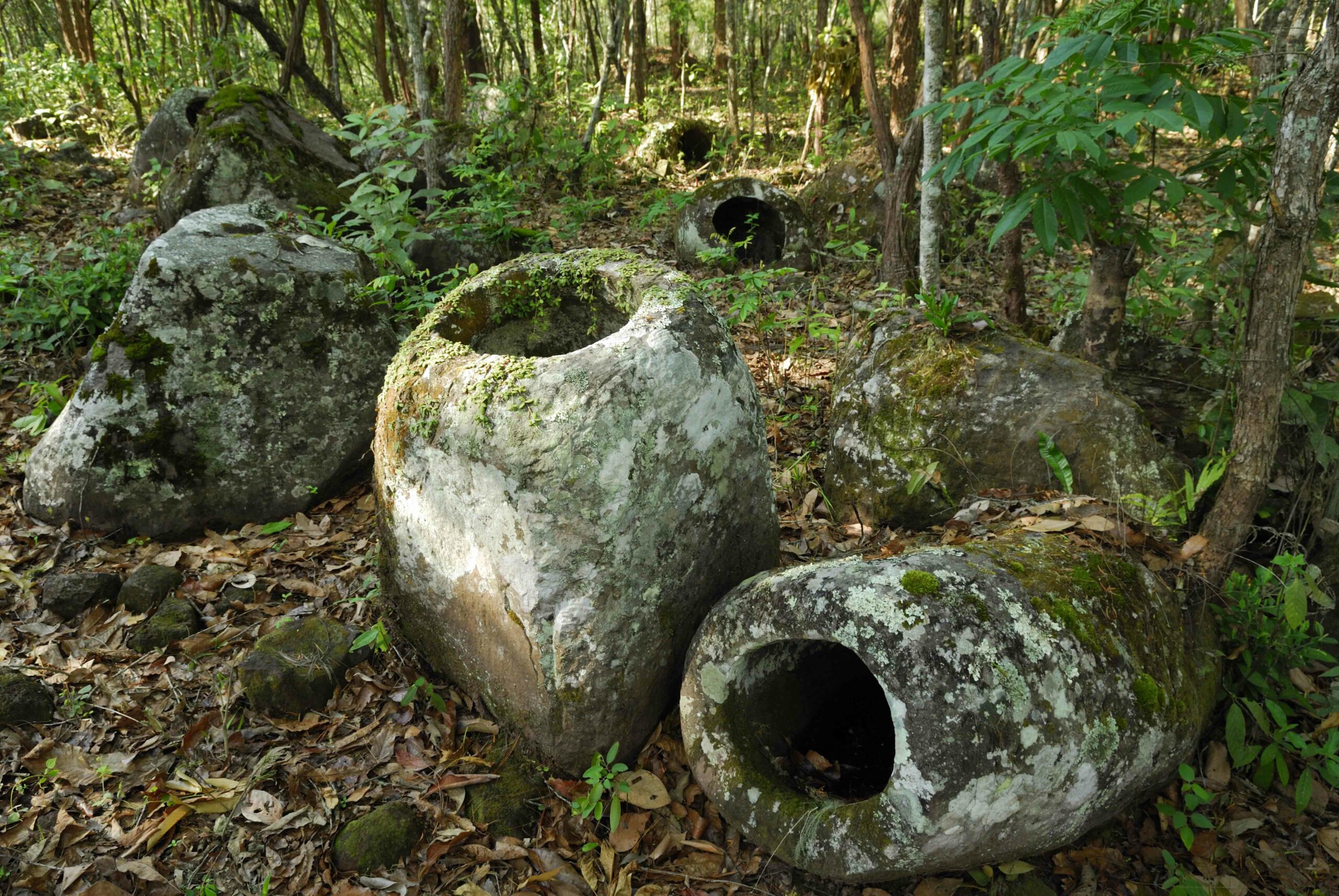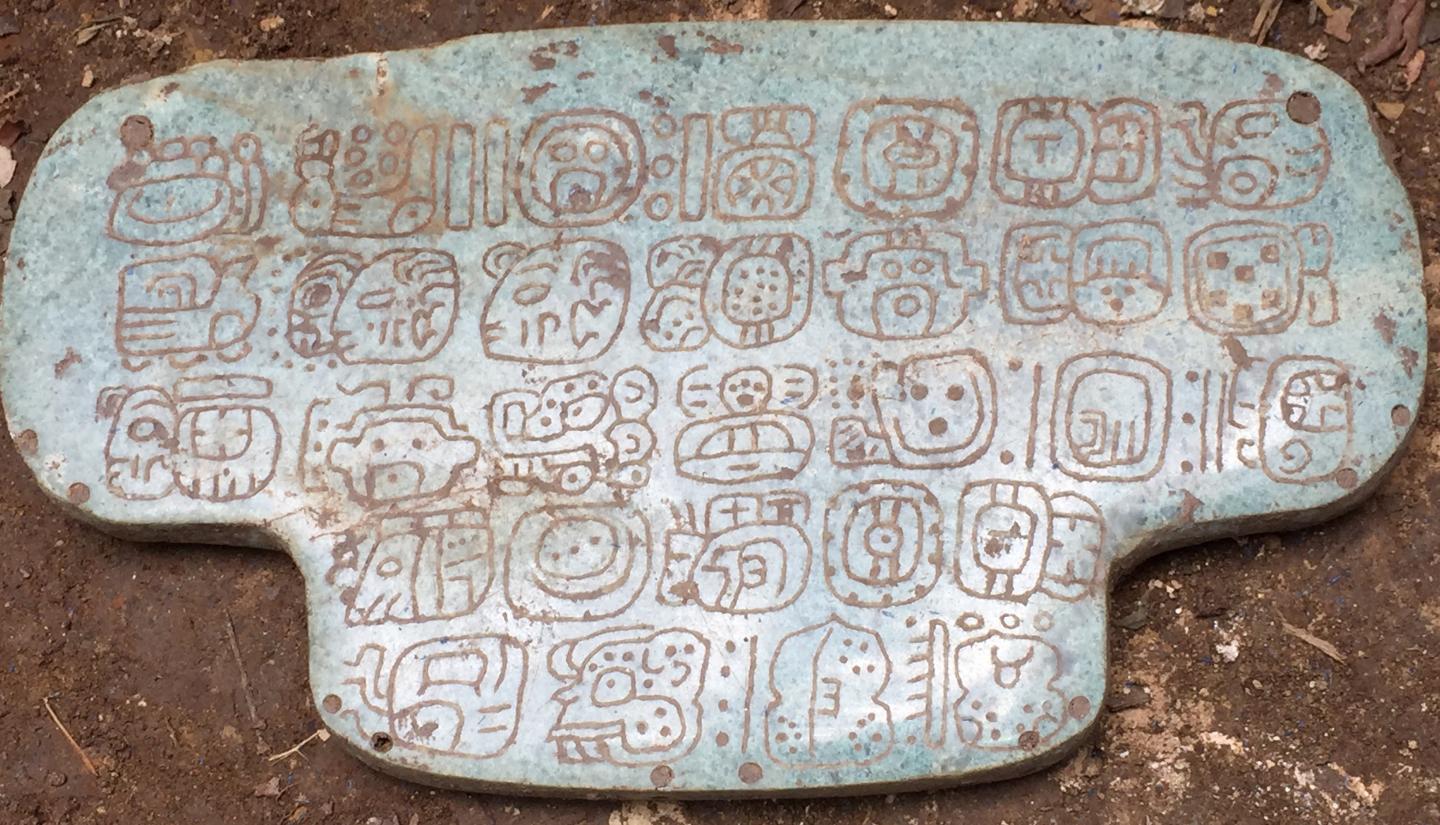
SAN DIEGO, CALIFORNIA—KPBS reports that a large T-shaped pendant has been discovered at the Maya frontier site of Nim Li Punit by a team of researchers led by Geoffrey Braswell of the University of California San Diego. The jade pendant is inscribed with a historical text consisting of 30 hieroglyphs, including the T-shaped glyph “ik’,” which stands for “wind and breath.” The text is still being analyzed, but it may relate to the arrival of a new royal dynasty at Nim Li Punit, which is located in southern Belize. “We speculate that this piece was given to the first king who wore it in an attempt, perhaps, to form an alliance,” Braswell said. “As other Maya kingdoms were playing out their cold wars and struggles against each other, they sought alliances with minor players in smaller regions.” The pendant was found in an intact collapsed tomb that dates to around A.D. 800, along with a pot that may depict the Maya god of wind. Braswell thinks the pendant may have been buried as an offering to the wind god, who was believed to bring the annual rains, at a time when climate change is thought to have damaged agriculture and Maya civilization. For more, go to “Letter from Guatemala: Maya Metropolis.”


